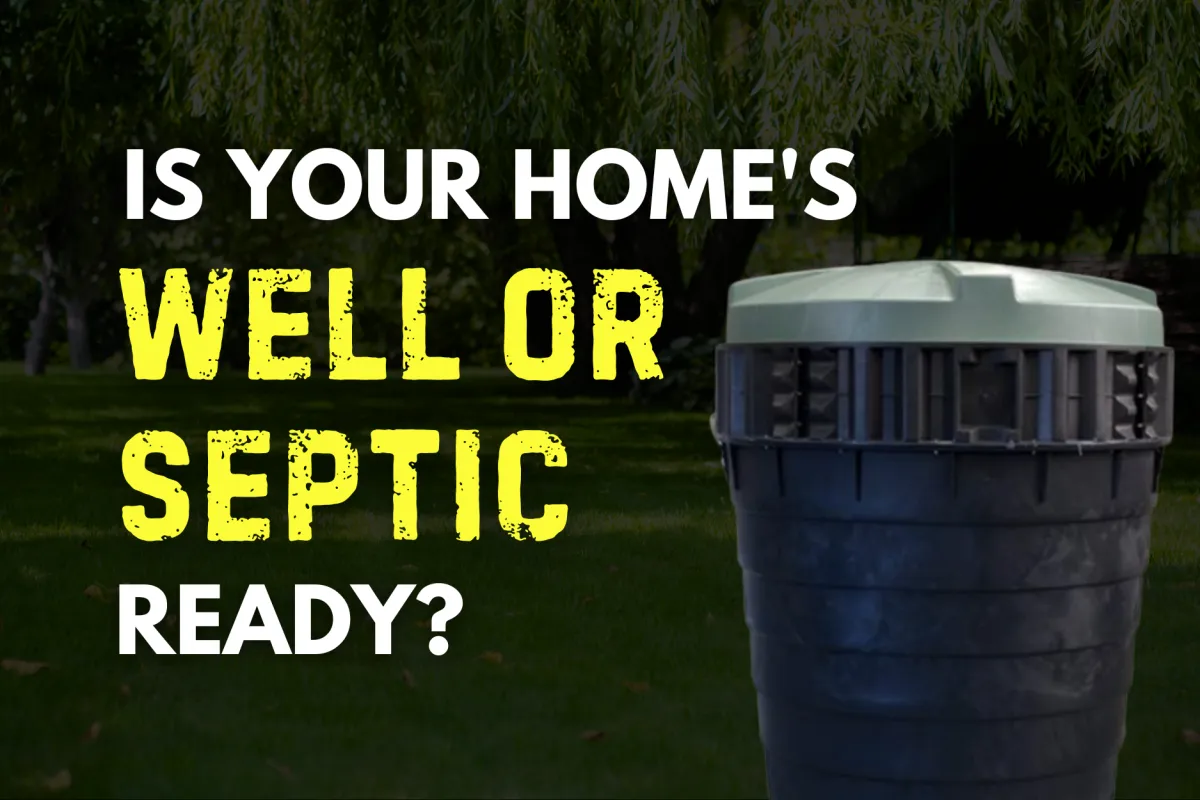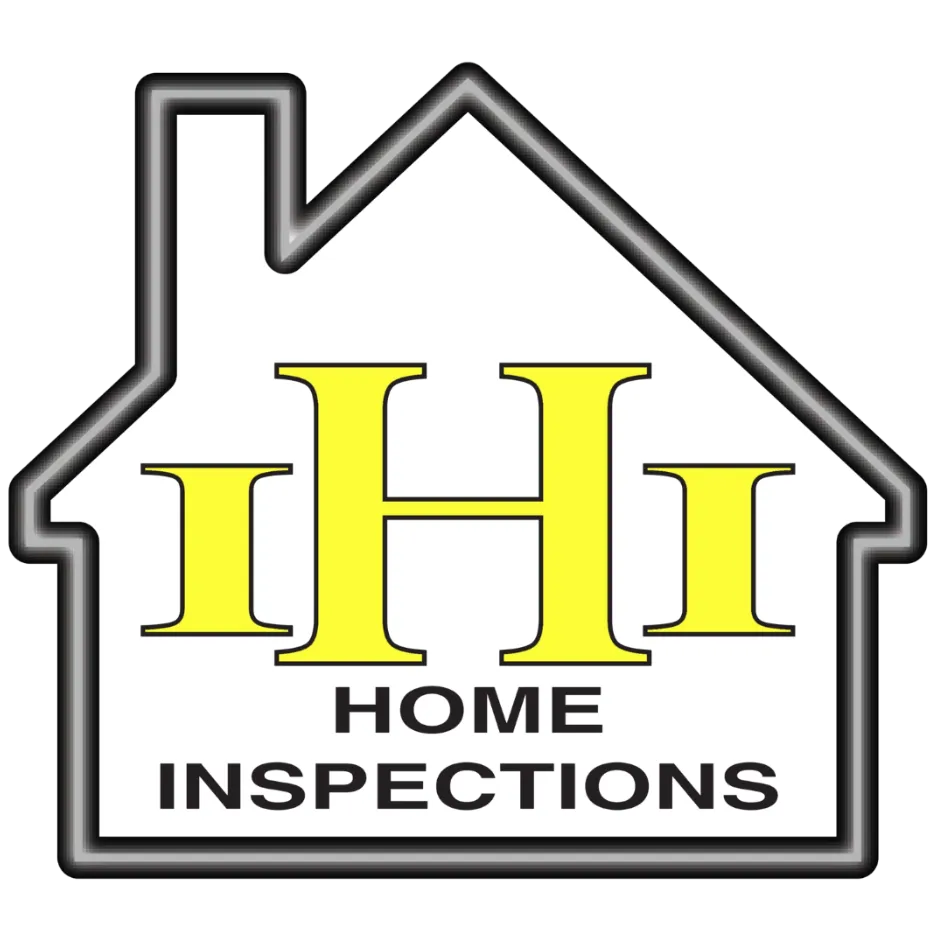
Essential Guide to Well and Septic Inspections in Pickens
The Hidden Risks of Wells and Septic Systems in Cherokee and Pickens Counties
Buying a home is an exciting milestone, but it’s easy to get swept up in the excitement of the search and overlook crucial aspects of the property. If you’re eyeing homes in Cherokee or Pickens County, you may find that many properties are equipped with wells and septic systems—especially in rural areas. While these systems are often reliable, they can present significant challenges for homeowners if not properly maintained or inspected before purchase.
You might have your heart set on that charming country home, but without a proper inspection of the well and septic systems, you could face unexpected—and costly—surprises down the road. This is where a trusted home inspector with expertise in these specialized systems comes into play.

In this article, we’ll walk you through what you should inspect first when buying a home with a well or septic system, particularly in Cherokee and Pickens County, and why a professional home inspection is crucial to avoid future headaches.
What Is a Well and Septic System, and Why Does It Matter?
Before diving into the details of what to inspect, let’s take a moment to understand why well and septic systems are critical components of rural homes, particularly in areas like Atlanta, Cherokee, and Pickens Counties.
Wells: The Lifeline for Water
A well is a private water supply system that draws water from underground sources, typically in rural or suburban areas. Unlike city water systems, wells require proper care and maintenance to ensure safe, clean water. Many homes in Cherokee and Pickens counties are not connected to public water, meaning well water is essential for daily living.
Septic Systems: Private Waste Disposal
A septic system is a private waste management system that processes household wastewater and treats it underground. It consists of a septic tank and a drain field that together filter and treat wastewater. Like wells, septic systems are often found in homes in rural regions where sewer lines are not available. Ensuring these systems are in good working order is key to protecting your property’s value.
What to Inspect First: Wells and Septic Systems
When buying a home with a well or septic system, there are several aspects that require special attention during the home inspection. A standard home inspection might not cover these systems in depth, so it’s essential to request a specialized inspection from a qualified professional like David Lelak of IHI Home Inspections.
Let’s break down what you should check for:
Well Inspection: Key Factors to Look For
1. Water Quality Test
Water quality is arguably the most important aspect of well inspections. After all, it’s crucial to ensure your water is free from contaminants like bacteria, nitrates, and harmful chemicals. In Cherokee and Pickens counties, where agricultural runoff and other environmental factors may affect water sources, testing for coliform bacteria and nitrates is especially important. A water test will also assess the pH levels, which can impact the overall quality of your water.
2. Well Flow Rate and Pressure
If the water flow from the well is weak or inconsistent, it could indicate an underlying problem with the well pump, pressure tank, or the depth of the well. A professional inspector will test the well’s flow rate and pressure to ensure it meets the minimum requirements for the home.
3. Well Depth and Condition
The depth of the well is an indicator of how reliable the water supply will be, especially during dry spells. Shallow wells are more vulnerable to contamination and running dry. The condition of the well casing (the pipe surrounding the well) should also be inspected for cracks, corrosion, or other issues that could allow contaminants to enter the water supply.
Septic System Inspection: What to Look For
1. Septic Tank Condition and Size
The size of the septic tank should be appropriate for the home’s size and the number of occupants. A septic tank that is too small can lead to overflows and system failures. During a septic inspection, the inspector will also check for cracks or damage in the tank, which can result in costly repairs.
2. Drain Field and Soil Absorption
The drain field is a vital component of the septic system, where wastewater is filtered through the soil. A septic inspection includes checking the condition of the drain field and assessing its ability to absorb water. In Cherokee County and Pickens County, where soil conditions can vary, this is a critical part of the inspection. Soggy ground, standing water, or foul odors around the drain field can indicate a system failure, leading to expensive repairs or replacement.
3. Wastewater Treatment
A septic system’s ability to properly treat wastewater is essential to prevent contamination and health risks. A home inspector will ensure that the system is functioning as designed and that there are no blockages or backups in the system.
Common Issues Found in Cherokee and Pickens Counties
In Cherokee County and Pickens County, wells and septic systems can present unique challenges due to the region's terrain, soil conditions, and environmental factors.

Water Quality Concerns
In rural areas, water quality can be compromised by agricultural runoff, wildlife contamination, or other environmental factors. It’s especially important to test well water for bacteria, nitrates, and other harmful substances that can be harmful to your health.
Septic System Failures
Failing septic systems can be a costly and disruptive problem for homeowners. In these counties, poorly maintained or outdated septic systems are often found in homes, particularly older properties. Common signs of septic failure include slow drains, foul odors, and wet areas around the drain field.
Why a Home Inspector Is Essential When Buying a Home with a Well or Septic System
1. Specialized Knowledge
Not all home inspectors have the expertise to properly evaluate a well or septic system. Hiring a home inspector like David Lelak of IHI Home Inspections, who is experienced in well and septic systems, ensures you’re getting a thorough inspection. A professional inspector will have the right tools, knowledge, and experience to spot potential issues that might go unnoticed by an untrained eye.
2. Protect Your Investment
A professional home inspection can save you thousands of dollars in repairs by identifying issues before you sign the contract. If a well or septic system fails after the purchase, the cost of repairs or replacements can be overwhelming. It’s much more cost-effective to catch these problems during the inspection process.
Red Flags to Watch Out For
While a professional inspector will cover all bases, here are some red flags to look for when inspecting a home with a well or septic system:
For Wells:
Cloudy or discolored water.
Low water pressure or fluctuating water flow.
Strange tastes or odors in the water.
For Septic Systems:
Wet areas around the septic tank or drain field.
Foul odors in the yard or around the system.
Slow drainage in sinks, toilets, or tubs.
Protecting Your Dream Home with a Comprehensive Inspection
Buying a home with a well or septic system in Cherokee or Pickens County can be a great investment, but it comes with the responsibility of ensuring these critical systems are functioning properly. By partnering with a skilled home inspector like David Lelak of IHI Home Inspections, you can make an informed decision and avoid costly mistakes.
A thorough inspection of the well and septic system is essential for safeguarding your health, finances, and peace of mind. Don’t let unseen issues turn your dream home into a nightmare—ensure that the systems are in top shape before you close the deal.
If you’re buying a home in Cherokee or Pickens County, don’t forget to schedule a well and septic system inspection at IHI Home Inspections. Contact us today 404-788-2581 or CLICK HERE to schedule your comprehensive home inspection and protect your investment for the long term.




